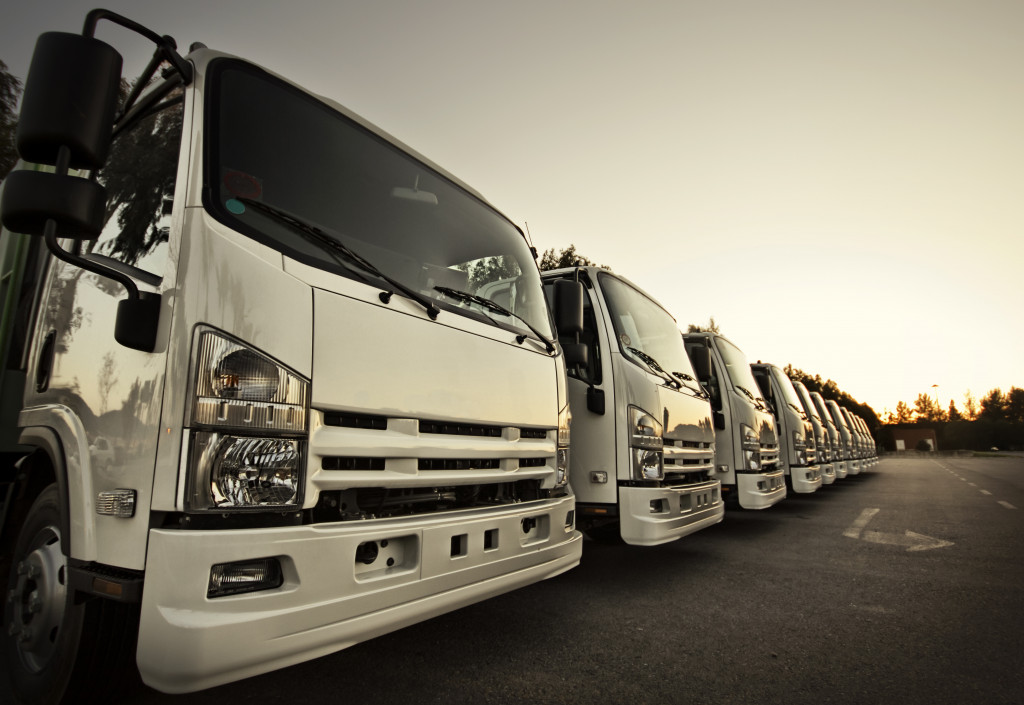• A commercial fleet is a group of vehicles owned or leased by a business and used for operations.
• Managing a commercial fleet requires careful planning, including considering its size and investing in suitable maintenance plans and insurance.
• Detailed records should be kept to track costs and ensure efficiency, while driver qualifications must also be met.
• Effective security measures should be put in place to protect vehicles and other assets.
Owning a commercial fleet can be an invaluable asset for any business. If you’re looking to increase your productivity, efficiency, and bottom line, a well-managed fleet can help you get there. But before you decide to invest in one, it’s crucial that you understand the basics. Read on to find out more.
What Is A Commercial Fleet?
A commercial fleet is a group of vehicles that are owned by or leased to a business and used for its operations. This can include cars, vans, trucks, trailers, and even heavy equipment like forklifts and cranes.
Typically, these fleets will be operated by employees who have been assigned specific tasks or duties related to the operation of the vehicle. For this reason, having a commercial fleet can provide numerous benefits for businesses.
For starters, it can reduce costs associated with having to purchase multiple vehicles from different suppliers. It also makes it easier to track maintenance costs and schedule preventative maintenance checks on each vehicle in the fleet. Additionally, owning a commercial fleet gives businesses greater control over their vehicles’ use and management.

How To Manage A Commercial Fleet
Managing a commercial fleet requires careful planning and execution. This is because it involves a significant amount of resources and can significantly impact your bottom line. Here are some key factors to consider:
Fleet Size
When managing a commercial fleet, you need to consider the size of your business and the number of vehicles you will need. The size of your fleet should be based on how often you need to use it, and what types of vehicles are best suited for each task.
Maintenance and Repair
Having a well-maintained fleet is essential to ensure the safety and efficiency of your operations. Ensure that you have a suitable maintenance plan in place for each vehicle and access to reliable repair services in case of unexpected breakdowns.
Detailed Records
Keeping detailed records is essential for managing a commercial fleet. This includes tracking the costs of fuel, maintenance, and repairs, as well as up-to-date vehicle registrations. By keeping accurate records, you can quickly identify areas where savings can be made, or efficiency can be improved.
Insurance
The right insurance is essential for any business with a commercial fleet. Ensure you have adequate coverage to protect your vehicles and employees in case of an accident or other unforeseen circumstances.
Driver Qualifications
All drivers in your commercial fleet must be adequately trained in order to operate vehicles safely and efficiently. Ensure that they have the necessary qualifications, licenses, and experience to perform their duties.

Securing A Commercial Fleet
Finally, you need to ensure that your commercial fleet is always secure. This means investing in suitable security measures that can protect your vehicles from theft or damage and reduce the likelihood of costly accidents. Here are some ideas:
GPS Tracking Systems
Installing efficient GPS fleet monitoring systems in each of your vehicles can help you keep track of their whereabouts and ensure they remain secure. These systems allow you to monitor the speed and location of each vehicle at all times and alert you in case of any suspicious activity.
Security Cameras
Installing high-definition security cameras around your business’s premises can help keep an eye on any suspicious activity. Additionally, investing in high-quality locks and alarms for each vehicle in your fleet is a good idea.
Access Control Systems
Restricting access to certain areas of the business can help you keep your vehicles and other assets secure. Invest in a reliable access control system that only allows authorized personnel to enter certain areas of the facility, such as the parking lot.
Owning a commercial fleet has many advantages for businesses looking for ways to save money while improving efficiency levels across their organization. From reducing costs associated with purchasing multiple vehicles from different vendors to giving companies total control over how their vehicles are managed and utilized throughout their operations—the list of potential benefits is long. However, managing an effective commercial fleet requires careful planning and execution. By understanding these basics and the potential risks involved, businesses will be able to make informed decisions about whether investing in a commercial fleet is right for them.

